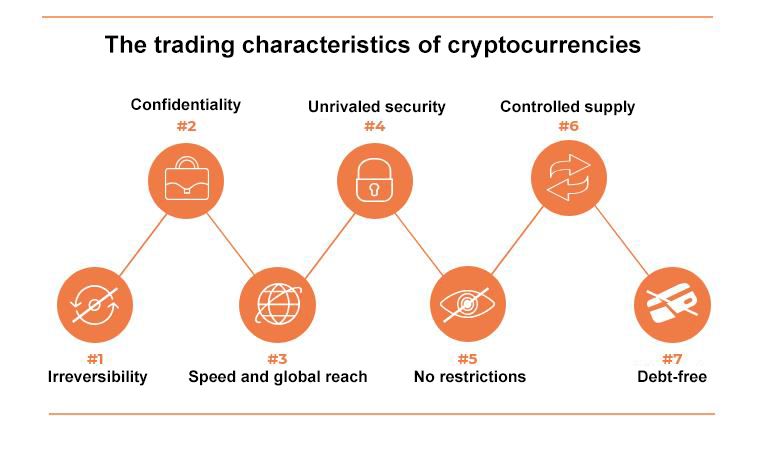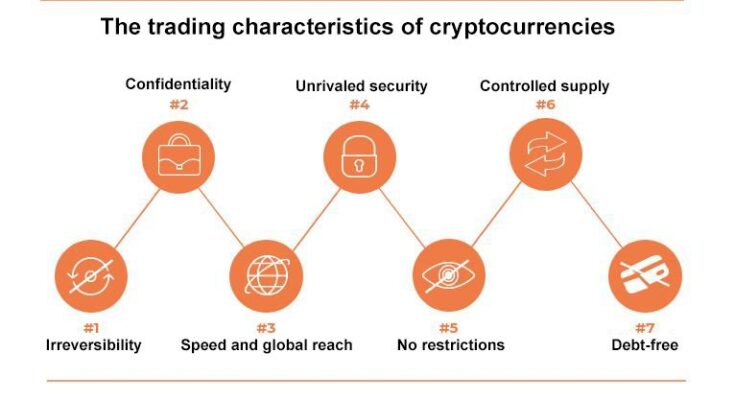Cryptocurrencies have revolutionized the way we think about money and financial transactions.

Introduction
With the rise of Bitcoin and other digital currencies, it’s essential to understand the characteristics that make them unique. In this article, we’ll delve into the fundamental features of cryptocurrencies and explore their implications.
*Decentralization*
1. *No Central Authority*: Cryptocurrencies operate independently of central banks and governments.
2. *Peer-to-Peer Transactions*: Direct transactions between individuals without intermediaries.
3. *Decentralized Ledger*: Blockchain technology ensures transparency and security.
*Digital*
1. *Virtual Existence*: Cryptocurrencies exist only in digital form.
2. *Electronic Transactions*: Fast and secure transactions via digital platforms.
3. *Digital Wallets*: Secure storage for cryptocurrencies.
*Limited Supply*
1. *Capped Supply*: Most cryptocurrencies have a limited supply.
2. *Scarcity*: Limited supply contributes to value appreciation.
3. *No Inflation*: Controlled supply prevents inflationary pressures.
*Fast and Secure Transactions*
1. *Blockchain Technology*: Ensures secure, transparent, and tamper-proof transactions.
2. *Cryptographic Algorithms*: Secure data transmission and storage.
3. *Fast Transaction Times*: Comparative to traditional payment systems.
*Low Transaction Fees*
1. *Minimal Fees*: Compared to traditional payment systems.
2. *No Intermediaries*: Reduced fees due to direct peer-to-peer transactions.
3. *Efficient*: Cost-effective transactions.
*Anonymous*
1. *Pseudonymous*: Users can remain anonymous.
2. *Private Transactions*: Secure and private transactions.
3. *Identity Protection*: Enhanced identity security.
*Immutability*
1. *Tamper-Proof*: Blockchain technology ensures transaction integrity.
2. *Permanent Records*: Transactions are permanently recorded.
3. *Transparent*: Public ledger ensures transparency.
*Security*
1. *Cryptographic Algorithms*: Secure data transmission and storage.
2. *Blockchain Technology*: Ensures secure, transparent, and tamper-proof transactions.
3. *Decentralized*: No single point of failure.
*Divisibility*
1. *Divisible Units*: Cryptocurrencies can be divided into smaller units.
2. *Microtransactions*: Enables small transactions.
3. *Flexible*: Accommodates various transaction sizes.
*Portability*
1. *Digital Existence*: Easy to transfer and store.
2. *Global Accessibility*: Accessible anywhere with internet connectivity.
3. *Convenient*: Easy to use and manage.
Conclusion
Cryptocurrencies have distinct characteristics that set them apart from traditional currencies. Understanding these features is crucial for navigating the cryptocurrency landscape. As cryptocurrencies continue to evolve, their unique characteristics will shape the future of finance and commerce.




